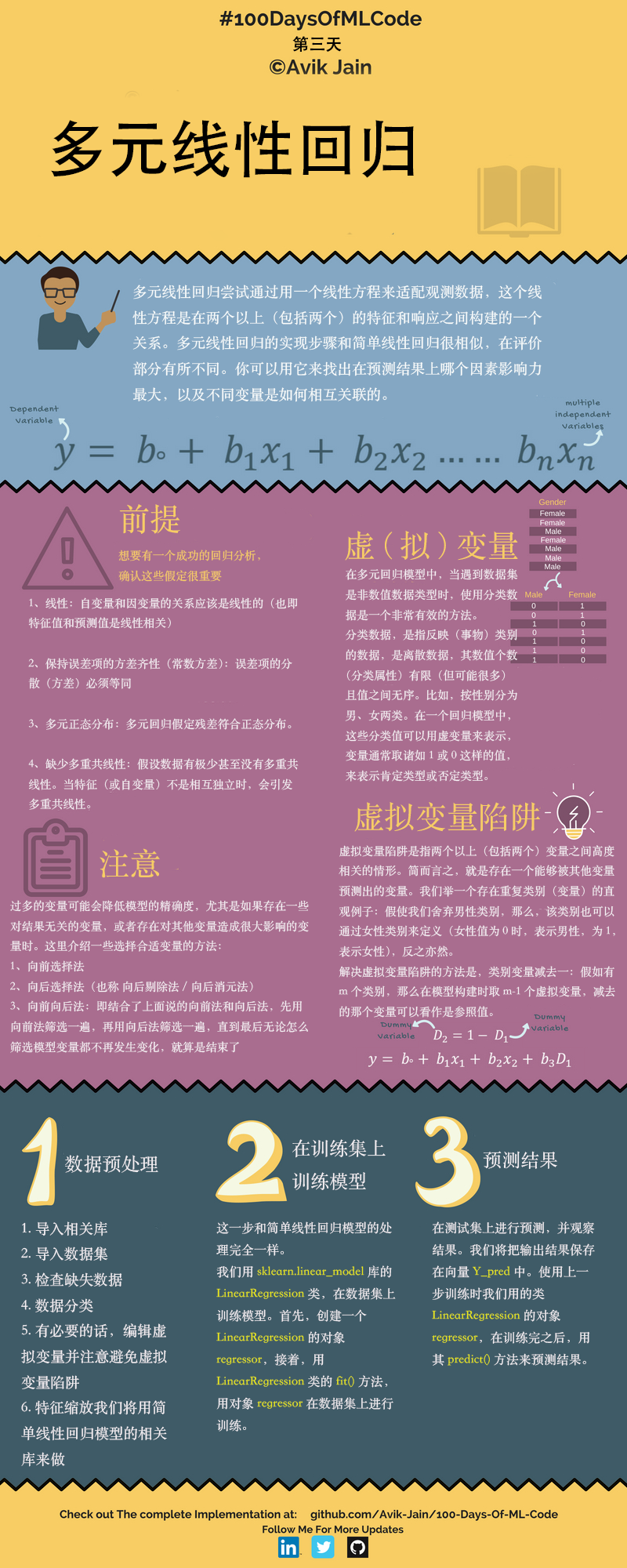import pandas as pd
import numpy as np
dataset = pd.read_csv('datasets/50_Startups.csv')
X = dataset.iloc[ : , :-1].values
Y = dataset.iloc[ : , 4 ].values
print('X:' + str(X[:5,:]))
print('Y:' + str(Y))
X:[[165349.2 136897.8 471784.1 'New York']
[162597.7 151377.59 443898.53 'California']
[153441.51 101145.55 407934.54 'Florida']
[144372.41 118671.85 383199.62 'New York']
[142107.34 91391.77 366168.42 'Florida']]
Y:[192261.83 191792.06 191050.39 182901.99 166187.94 156991.12 156122.51
155752.6 152211.77 149759.96 146121.95 144259.4 141585.52 134307.35
132602.65 129917.04 126992.93 125370.37 124266.9 122776.86 118474.03
111313.02 110352.25 108733.99 108552.04 107404.34 105733.54 105008.31
103282.38 101004.64 99937.59 97483.56 97427.84 96778.92 96712.8
96479.51 90708.19 89949.14 81229.06 81005.76 78239.91 77798.83
71498.49 69758.98 65200.33 64926.08 49490.75 42559.73 35673.41
14681.4 ]
from sklearn.preprocessing import LabelEncoder, OneHotEncoder
labelencoder = LabelEncoder()
X[: , 3] = labelencoder.fit_transform(X[ : , 3])
print("X labelencoder" + str(X[: , 3]))
onehotencoder = OneHotEncoder(categorical_features = [3])
X = onehotencoder.fit_transform(X).toarray()
print('X:' + str(X.shape))
X labelencoder[0. 0. 0. 0. 0. 0. 0. 0. 0. 0. 0. 0. 0. 0. 0. 0. 0. 0. 0. 0. 0. 0. 0. 0.
0. 0. 0. 0. 0. 0. 0. 0. 0. 0. 0. 0. 0. 0. 0. 0. 0. 0. 0. 0. 0. 0. 1. 0.
0. 0.]
X:(50, 55)
from sklearn.model_selection import train_test_split
X_train, X_test, Y_train, Y_test = train_test_split(X, Y, test_size = 0.2, random_state = 0)
from sklearn.linear_model import LinearRegression
regressor = LinearRegression()
regressor.fit(X_train, Y_train)
y_pred = regressor.predict(X_test)
import matplotlib.pyplot as plt
plt.scatter(Y_test , Y_test, color = 'green')
plt.scatter(Y_test , y_pred, color = 'red')

